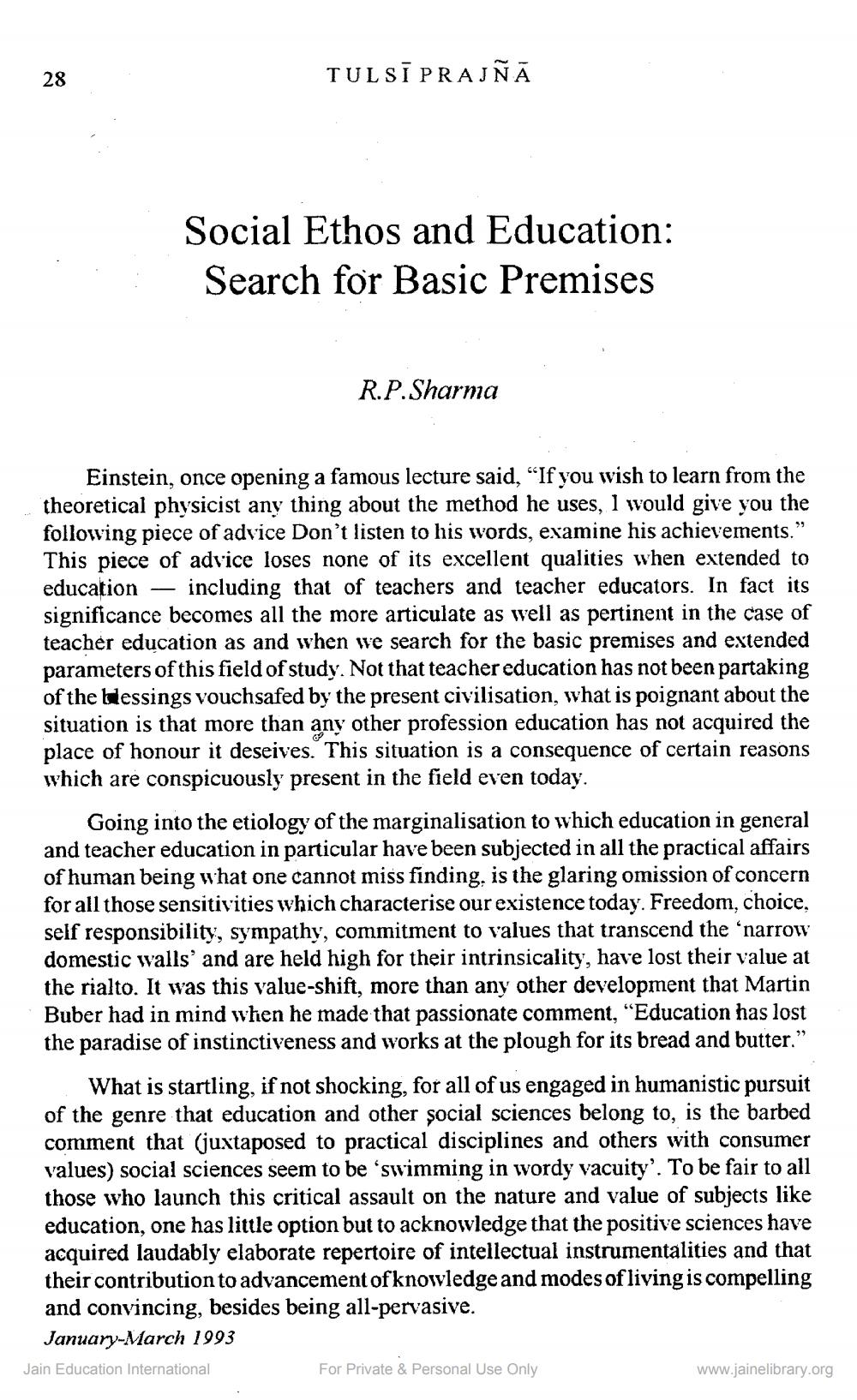________________
28
TULSI PRAJÑA
Social Ethos and Education: Search for Basic Premises
R.P.Sharma
Einstein, once opening a famous lecture said, “If you wish to learn from the theoretical physicist any thing about the method he uses, I would give you the following piece of advice Don't listen to his words, examine his achievements.” This piece of advice loses none of its excellent qualities when extended to education – including that of teachers and teacher educators. In fact its significance becomes all the more articulate as well as pertinent in the case of teacher education as and when we search for the basic premises and extended parameters of this field of study. Not that teacher education has not been partaking of the lessings vouchsafed by the present civilisation, what is poignant about the situation is that more than any other profession education has not acquired the place of honour it deseives. This situation is a consequence of certain reasons which are conspicuously present in the field even today.
Going into the etiology of the marginalisation to which education in general and teacher education in particular have been subjected in all the practical affairs of human being what one cannot miss finding, is the glaring omission of concern for all those sensitivities which characterise our existence today. Freedom, choice, self responsibility, sympathy, commitment to values that transcend the 'narrow domestic walls' and are held high for their intrinsicality, have lost their value at the rialto. It was this value-shift, more than any other development that Martin Buber had in mind when he made that passionate comment, “Education has lost the paradise of instinctiveness and works at the plough for its bread and butter.”
What is startling, if not shocking, for all of us engaged in humanistic pursuit of the genre that education and other social sciences belong to, is the barbed comment that (juxtaposed to practical disciplines and others with consumer values) social sciences seem to be 'swimming in wordy vacuity'. To be fair to all those who launch this critical assault on the nature and value of subjects like education, one has little option but to acknowledge that the positive sciences have acquired laudably elaborate repertoire of intellectual instrumentalities and that their contribution to advancement of knowledge and modes of living is compelling and convincing, besides being all-pervasive.
January-March 1993 Jain Education International For Private & Personal Use Only
www.jainelibrary.org




